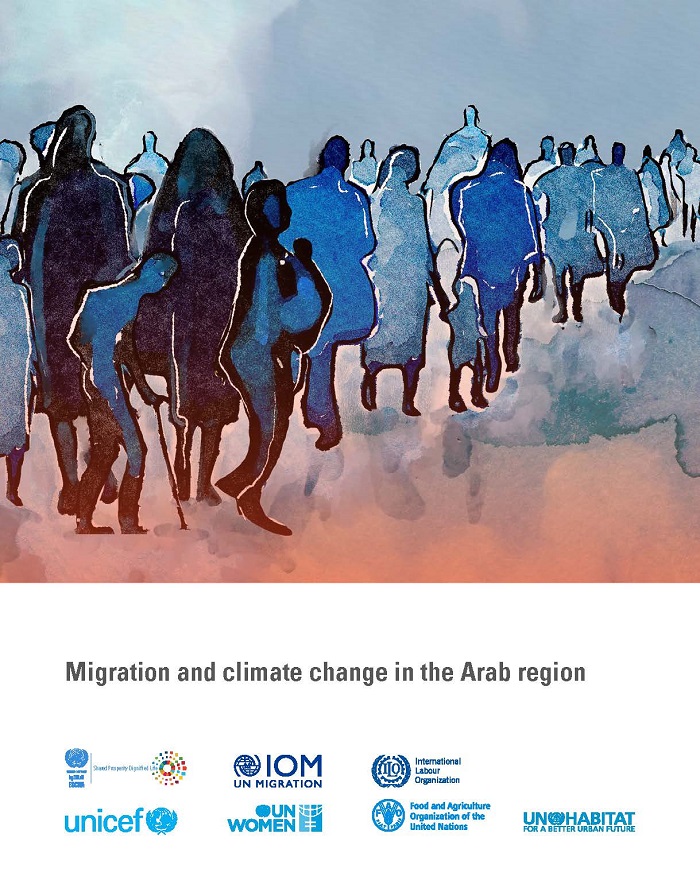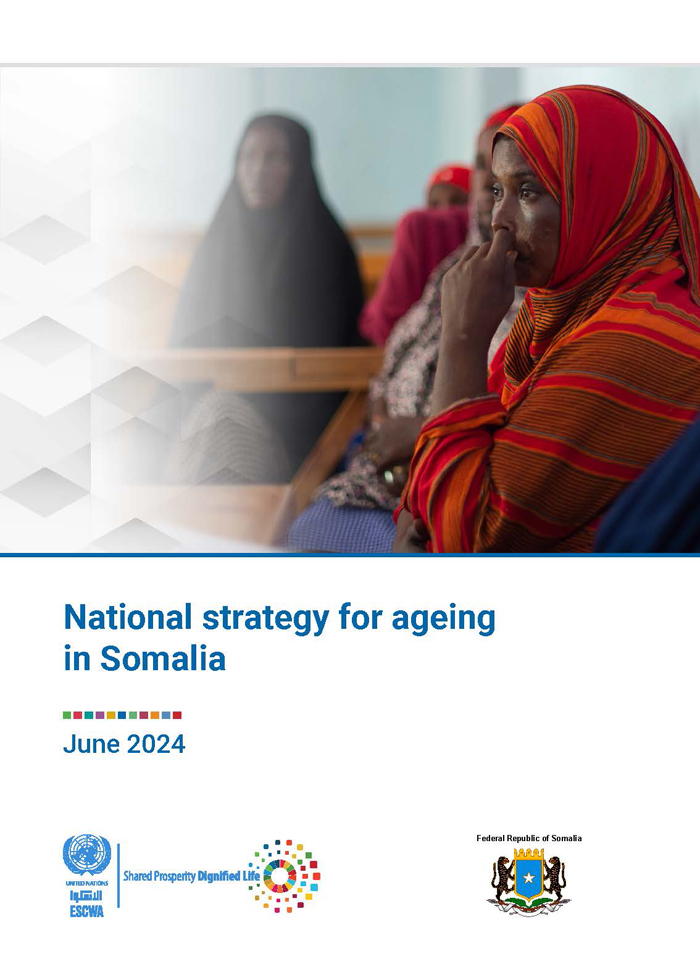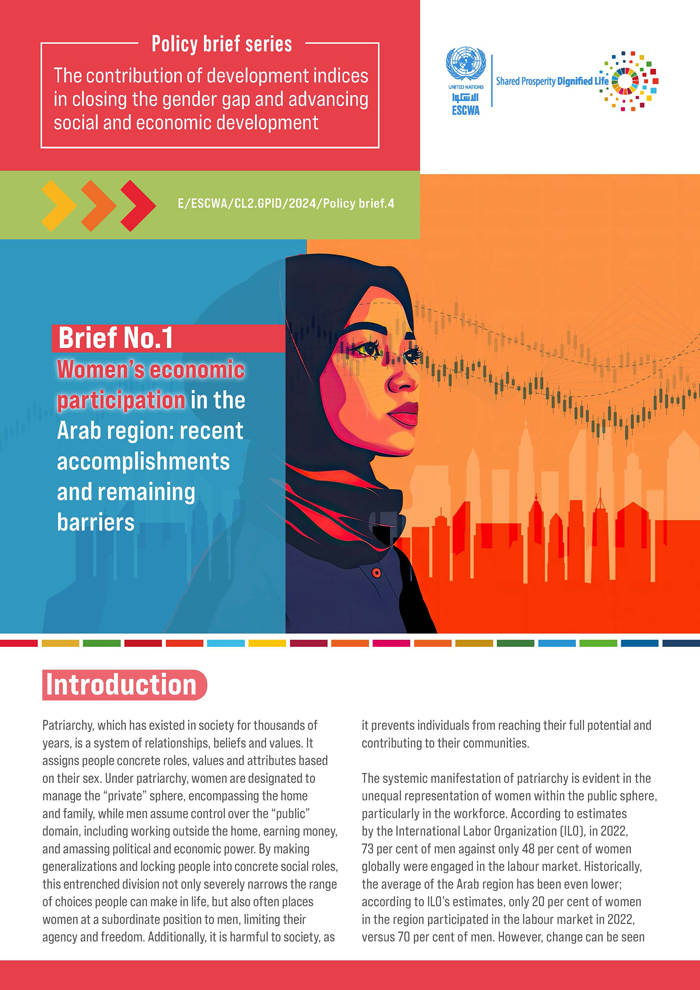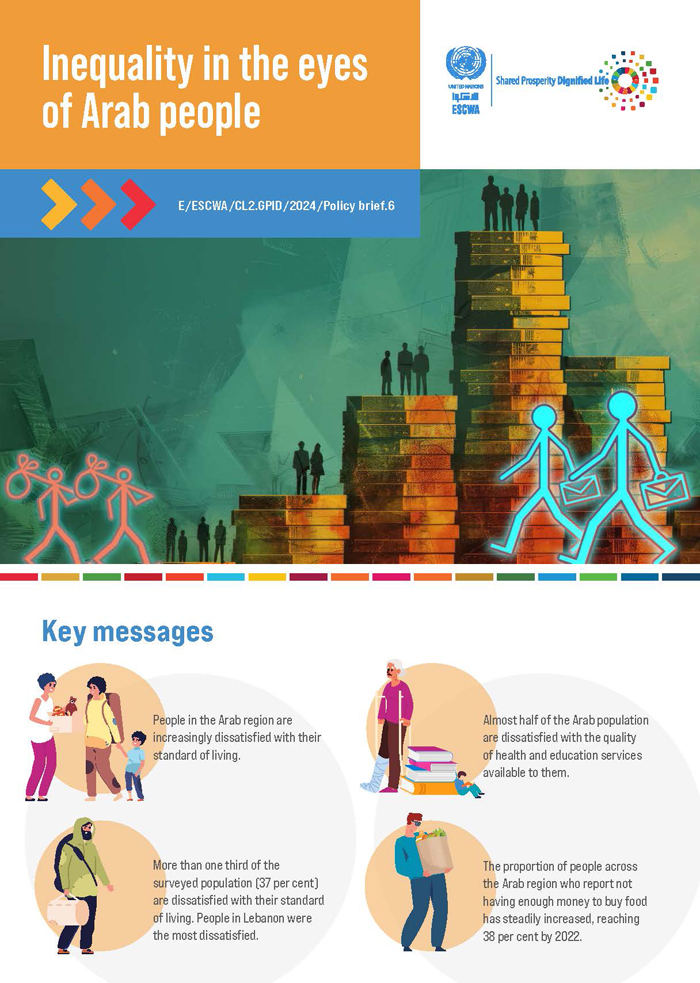
ESCWA Publication: E/ESCWA/CL2.GPID/2023/TP.17
Country: Arab region
Publication Type: Reports & studies
Cluster: Gender Justice, Population and Inclusive Development
Focus Area: Gender equality, Inclusive development, Population dynamics & migration
Initiatives: Women, peace and security, International migration, Climate Resilience through Regional Cooperation
SDGs: Goal 1: No Poverty, Goal 2: Zero Hunger, Goal 5: Gender Equality, Goal 10: Reduced Inequalities, Goal 13: Climate Action
Keywords: Climate change, Migration, Climate change adaptation, Labour mobility, Refugees, Displaced persons, Migrant workers, Food security, Children, Urbanization, Women, Government policy, Research, Recommendations, Arab countries, Resilience
Migration and climate change in the Arab region
January 2024
Climate change has devastating impacts on people, their communities, and their jobs and livelihoods. Recognizing and addressing the disproportionate effect of climate-induced migration and displacement on women and children, as well as the various implications of climate change for food production in the Arab region is of utmost importance. Significant challenges have emerged, particularly in relation to urbanization, owing to the rise in rural-to-urban migration in the region.
Migration and labour mobility can be a climate resilience and adaptation strategy for origin and host communities, but they need to be managed effectively. As such, evidence-based policymaking is critical. The present paper offers a series of recommendations for building a robust and holistic approach to managing the migration-climate change nexus.
Related content
Gender equality
, Inclusive development
, Population dynamics & migration
,
Climate change has devastating impacts on people, their communities, and their jobs and livelihoods. Recognizing and addressing the disproportionate effect of climate-induced migration and displacement on women and children, as well as the various implications of climate change for food production in the Arab region is of utmost importance. Significant challenges have emerged, particularly in relation to urbanization, owing to the rise in rural-to-urban migration in the region.
Migration and labour mobility can be a climate resilience and adaptation strategy for origin and host communities, but they need to be managed effectively. As such, evidence-based policymaking is critical. The present paper offers a series of recommendations for building a robust and holistic approach to managing the migration-climate change nexus.



